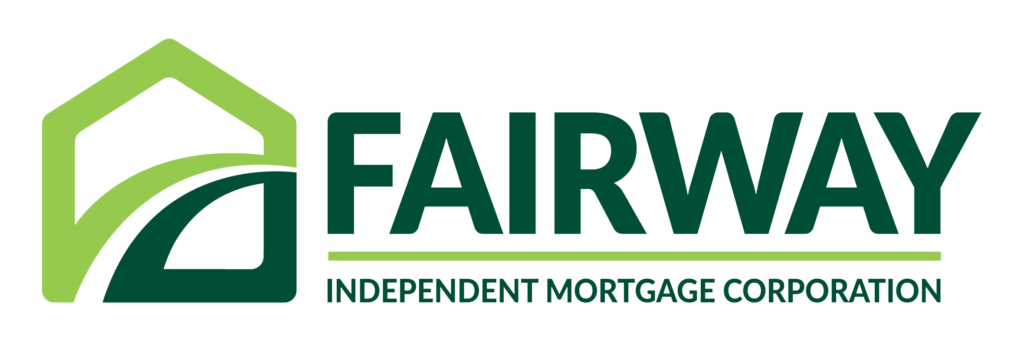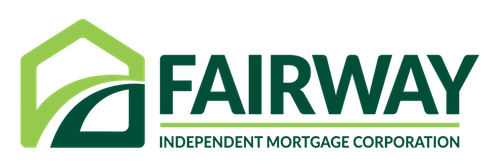QUIZ: Is a Reverse Mortgage Loan Right for You?

Tapping home equity via a reverse mortgage loan can be an excellent way for seniors to continue to own and live in the home they know and love while increasing their monthly cash flow to meet the rising costs of living and mitigate retirement risks, such as market downturns and outliving savings.*
A reverse mortgage is a home-secured loan that allows older-adult homeowners to access a portion of their home equity as cash or a line of credit. Borrowers can defer repayment of the loan balance until a much later date, generally when the last surviving borrower no longer occupies the property and the home sells.
Having considerably evolved since their inception decades ago, today’s reverse mortgages have added protections for older Americans. They’re now a viable and sustainable solution for a wide range of older adults wishing to age in place in their homes.
While there are several types of reverse mortgages, the Home Equity Conversion Mortgage (HECM) loan is by far the most popular option among reverse mortgage borrowers and the only one insured by the Federal Housing Administration (FHA).
To find out if you and your goals are a good match for a HECM reverse mortgage loan, take our 10-question quiz.
Is a Reverse Mortgage Loan Right for You?
1. Are you 62 or older?
A HECM is specially designed for homeowners 62 and over. If you’re not yet 62, the only option is to wait.
2. Do you have significant equity in your home?
To qualify for a HECM, you must own your home outright or have significant equity. If you have a shortfall in equity, you can close the gap by bringing funds to the closing.
To see what you may qualify for, use our reverse mortgage calculator!
3. Is your home where you plan to live long-term?
Reverse mortgages can help older Americans age in place. If you prefer to live in your home for as long as possible, and your home is suitable to age in place, then a reverse mortgage may be a good fit.
If you plan to sell your home within the next few years, a reverse mortgage is a less ideal solution. With a reverse mortgage, you still own your home and can sell it at any time. However, for your loan to remain in good standing, you must continue to own and occupy your home as your primary residence. Selling the home would cause the loan to mature and the loan balance to become due and payable.
If you only have a HECM for a short time, you may find it an expensive loan based on the upfront costs to establish the loan versus the short duration of time you’d benefit from its flexible repayment feature.
4. Are you looking for an affordable way to pay for home modifications to enable aging in place?
Whether it’s widening doorways, adding task lighting or redesigning a bedroom or kitchen, many home modifications can help you live more safely and comfortably in your home, now and in the future.
With a reverse mortgage, you may be able to make all the home improvements you want or need without having to drain your savings or take on a loan that requires monthly principal and interest payments. As a reminder — with a reverse mortgage, you’re still responsible for paying your property charges, but you’ll have no required monthly principal and interest mortgage payments for the life of the loan.
5. Do you wish to leave your home to heirs?
If you wish to leave your home to your heirs free of any mortgage debt, then a reverse mortgage may not be a good fit. Most reverse mortgage borrowers choose not to make voluntary prepayments toward the loan balance, which tends to rise over time as interest and fees get tacked on.
However, taking out a reverse mortgage doesn’t mean the bank gets your home after you pass away, nor does it prohibit leaving it to your heirs. If the heirs want to keep the home, they can pay off the mortgage balance, which typically involves your heirs refinancing the loan balance into a new traditional mortgage. They can also choose to sell the home and pocket any profit.
If the mortgage balance were to be higher than the home’s value, your heirs could obtain a short payoff of 95% of the current home value to keep it, or they can sign a Deed-in-Lieu of foreclosure and walk away from the home. This is known as the loan’s non-recourse feature, and the FHA insures it. It’s a guarantee that neither the borrower nor the heirs will ever owe more than the value of the home when the home is sold.**
**There are some circumstances that will cause the loan to mature and the balance to become due and payable. Borrower is still responsible for paying property taxes and insurance and maintaining the home. Credit subject to age, property and some limited debt qualifications. Program rates, fees, terms and conditions are not available in all states and subject to change.
6. Are you looking to leave a legacy beyond your home?
While a reverse mortgage generally means less legacy in the form of home equity, it can also mean you’ll be able to leave a greater net legacy than if you ignore home equity in your retirement cash flow strategy. For instance, a HECM line of credit may help you better protect and extend the life of your savings and investment portfolio — assets that can also serve as a legacy.* We encourage you to talk with your financial advisor about ways home equity can become part of your comprehensive retirement cash flow plan.
7. Would you rather make memories or mortgage payments?
How would having an increased monthly cash flow help you make more memories with your family and friends? From new travel adventures to helping the grandkids with college tuition, a reverse mortgage loan can help you see the impact of your legacy in your lifetime.
One of the most attractive features of a reverse mortgage is that the borrower can defer repayment of the loan balance for the life of the loan, as the loan generally doesn’t become due and payable until the last surviving borrower passes away or moves out.
If you’re still carrying a traditional mortgage, consider how eliminating those required monthly principal and interest mortgage payments would create one less worry for you while increasing your flexibility in retirement.
You can use HECM loan proceeds at closing to refinance (pay off) your payment-required traditional mortgage into a payment-optional reverse mortgage. Plus, you can use any remaining HECM loan proceeds as you wish, such as to pay for in-home care or to establish a rainy-day fund.
8. Do you have the means to pay critical property charges, like taxes and insurance, for the foreseeable future?
If you don’t have sufficient residual income to pay your property charges now and in the future, a reverse mortgage may not be the proper solution.
Even though a reverse mortgage doesn’t require monthly principal and interest payments, the borrower must be able to pay the ongoing property-related bills and dues, such as taxes and insurance. Failure to meet those mandatory obligations may cause the borrower to default on the mortgage.
The HECM program requires lenders to evaluate a borrower’s willingness and capacity to meet the ongoing property charge obligations when deciding whether to approve the loan. A “financial assessment” is done to help ensure the reverse mortgage is a sustainable solution for the borrower.
9. Is your property type eligible for a HECM reverse mortgage?
Here’s a list of the generally accepted property types for the HECM program:
- Single-family residences
- Two- to four-unit properties, as long as the borrower occupies one unit
- Condos in HUD-approved condominium project
- Condos that qualify for single-unit approval (SUA)
- Modular home
- Manufactured homes that meet FHA requirements
10. Are you looking to establish a secure line of credit to tap when needed?
Emergencies can happen at any time, and having an emergency fund can help you face the future confidently. Reverse mortgage loan proceeds can be held in a line of credit until you wish to draw them, such as to cover unexpected health care expenses.
With a HECM line of credit, as long as you meet the loan terms, no one — including the lender — can freeze, reduce or cancel your line of credit. This holds even if market conditions change, your financial situation suddenly changes or your home drops in value.
As long as the borrower doesn’t fully draw the HECM loan, the unused portion of the credit line grows at the same compounding interest rate as the loan balance (independent of swings in the home’s value), giving the borrower access to even more funds over time. For this reason, it can be valuable to establish the HECM line of credit sooner rather than later.
Is a Reverse Mortgage Right for You?
If you answered “yes” to most of these questions, a reverse mortgage may be a valuable tool for your retirement planning. Together, let’s explore the pros and cons of reverse mortgages, so you can decide if establishing one is the right move for you and your situation. Connect with us today to learn more.
*This advertisement does not constitute tax or financial advice. Please consult a tax professional or financial advisor regarding your specific situation. **There are some circumstances that will cause the loan to mature and the balance to become due and payable. Borrower is still responsible for paying property taxes and insurance and maintaining the home. Credit subject to age, property and some limited debt qualifications. Program rates, fees, terms and conditions are not available in all states and subject to change. Copyright©2023 Fairway Independent Mortgage Corporation (“Fairway”) NMLS#2289. 4750 S. Biltmore Lane, Madison, WI 53718, 1-866-912-4800. All rights reserved. Fairway is not affiliated with any government agencies. These materials are not from HUD or FHA and were not approved by HUD or a government agency. Reverse mortgage borrowers are required to obtain an eligibility certificate by receiving counseling sessions with a HUD-approved agency. The youngest borrower must be at least 62 years old. Monthly reverse mortgage advances may affect eligibility for some other programs. This is not an offer to enter into an agreement. Not all customers will qualify. Information, rates and programs are subject to change without notice. All products are subject to credit and property approval. Other restrictions and limitations may apply. Equal Housing Opportunity.

